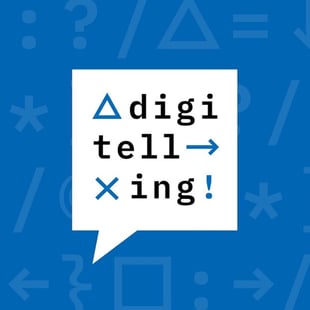Back
Digitelling is a mentoring program run by the Goethe-Institut Kroatien and the Institut français de Croatie dedicated to the fostering and networking of the independent video game sector in Southeastern Europe, offering the chance for local innovative games to reach global audiences. Teams from Albania, Bosnia and Herzegovina, Montenegro, Croatia, Kosovo, Northern Macedonia, Slovenia and Serbia are eligible to apply.
Through an intensive training program build with the esteemed university programs - Cologne Game Lab (Prof. Emmanuel Guardiola) in Germany, ENJMIN, Angoulême in France and the Edu4Games initiative at University of Zagreb, this project aims at supporting young game design teams engaged in creating innovative video games to reach European and international markets. The focus will be on projects that explore the artistic potential of the medium: games that deal with ethical dilemmas and important social subjects, but also the ones experimenting with new mechanics of interaction and visual styles.
Selected teams will be mentored by esteemed game design, production, marketing and distribution experts.
The workshops will take place within landmark professional events: Reboot Develop Blue in Dubrovnik, World Festival of Animated Film - Animafest Zagreb and Art in Games festival in Rijeka.
The project will connect the participants with a network of European producers and distributors of video games on German and French industry events.
- Goethe-Institut Kroatien and the Institut français de Croatie share a common vision of promoting video games as an art form that reflects key topics of discussion in contemporary society and raises ethical questions, with the aim of raising public awareness of the importance of public civic engagement
- The project's curator is Srđan Laterza, and the project is a continuation of the succesful 2019 Franco-German Interactive Empathy project.
- Edu4Games is an initiative for the development of a video game design degree program within the University of Zagreb - Academy of Dramatic Art, Academy of Fine Arts, School of Design Studies at the Faculty of Architecture, Faculty of Organization and Informatics and Faculty of Electrical Engineering and Computing.
DigiTelling 2020 is supported by the Franco-German Cultural Fund.
TIMELINE
- Invitation to submit a video game at a concept level or some stage of development by 9 March 2020 via this link.
- Applicants will be notified of the selection results by 16 March 2020.
SUBMISSION
- Submissions should be in English
- It is not necessary to submit a playable prototype, but submissions with the prototype may have an advantage in selection.
TERMS
- Travel and accomodation costs, as as well as accreditations for the events they will attend, will be covered for all DigiTelling participants
- Participants retain copyright of the games they complete as part of the program, while the program organizers have the right to promote the program and games through their own communication channels for non-commercial cultural and educational purposes.
Mentorship program:
- 1st session: Reboot Develop Blue, Cavtat / Dubrovnik - April 23-25, 2020
- 2nd session: World Festival of Animated Film – Animafest Zagreb - June 8-13, 2020
- 3rd session: Art in Games Festival, Rijeka - September 24-26, 2020
Focus:
- Designing powerful interactive stories that foster player empathy
- Mentoring all artistic disciplines in game creation - music, visual art, animation
- Marketing, presentation and distribution - defining global niches for innovative video games, identifying and reaching the audience
- Financial aspects - planning and implementing a fundraising strategy (public funds, private investment, crowdfunding, etc.)
Contacts:
Thomas Schnabel, Institut français de Croatie, [email protected]
Hrvoje Ryznar, Goethe-Institut Kroatien, [email protected]



